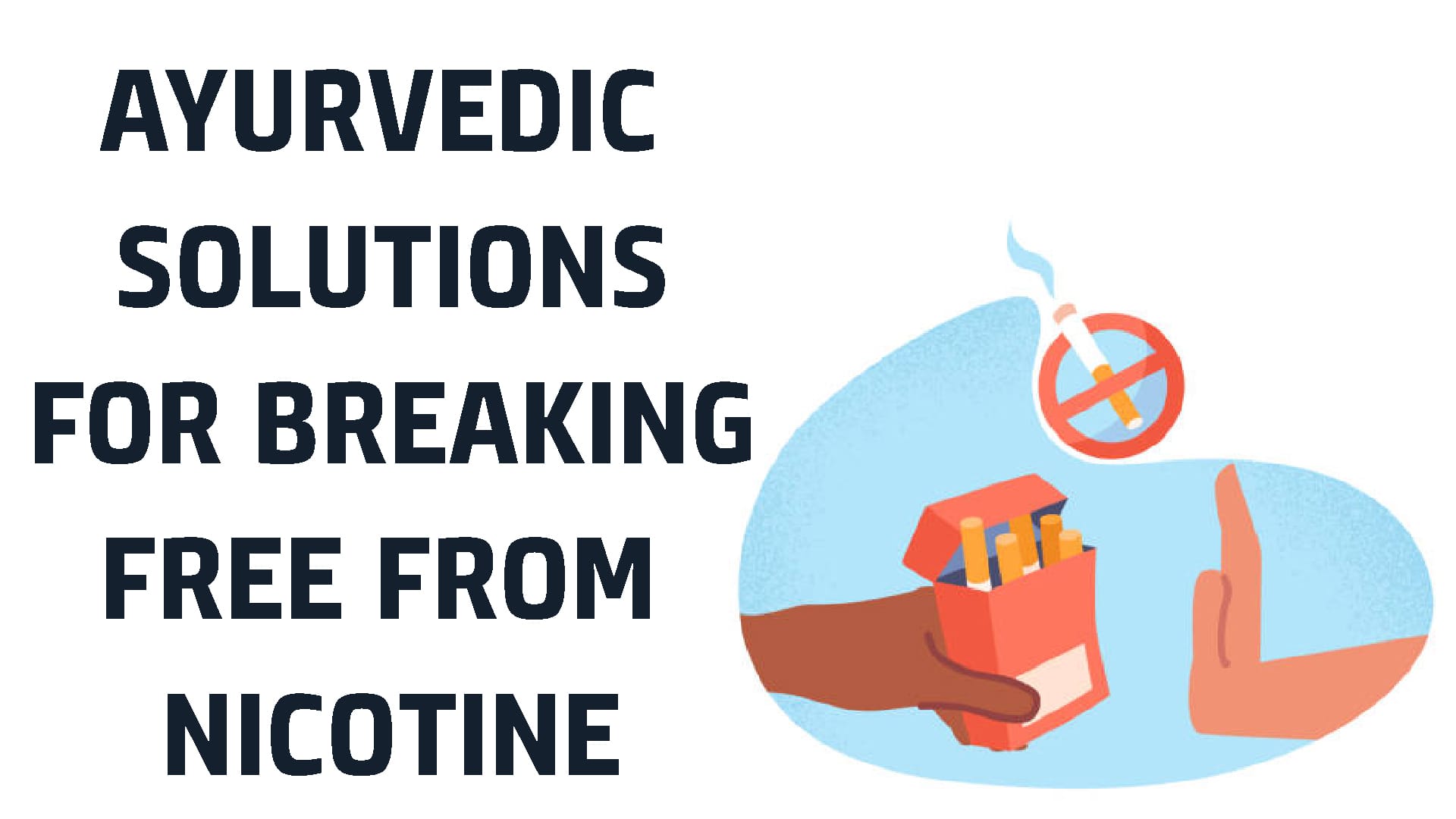Did you know that nicotine addiction contributes to over 8 million deaths each year? That’s a scary number. It shows the grip this substance has on so many people. Finding a way out can feel impossible. Ayurveda offers a different route. It’s a holistic healing system with the potential to help you break free. This ancient wisdom could be the key to reclaiming your health.
Thank you for reading this post, don't forget to subscribe!Understanding Nicotine Addiction from an Ayurvedic Perspective

Ayurveda views addiction as an imbalance. This involves your doshas, plus mental factors like Rajas and Tamas. Imagine your body as a scale. When everything is balanced, you feel great. Addiction throws everything off, causing cravings.
The Three Doshas and Addiction
Vata, Pitta, and Kapha are your doshas. These can lead to cravings and addiction when they’re out of balance. Think of Vata imbalance creating anxiety. This can make you crave a cigarette to feel calm. Pitta might cause irritability. Kapha could lead to lethargy that nicotine temporarily fixes. Understanding these imbalances helps you target the root of addiction.
The Role of Rajas and Tamas
Rajas and Tamas also play roles. Rajas creates restlessness and makes it hard to sit still. Tamas breeds lethargy, making you feel down. Reduce Rajas through calming activities. Meditation can help you find inner peace. A regular sleep schedule can also help to reduce Rajas. Eat light foods. Reduce Tamas by staying active. Get sunlight and do things you enjoy.
Ayurvedic Herbs for Nicotine Withdrawal

Certain herbs can help ease nicotine withdrawal. These herbs reduce cravings and support detoxification. Consider these natural allies in your journey. They provide gentle, yet powerful, support.
Ashwagandha for Stress Reduction
Ashwagandha is an adaptogen. That means it helps your body manage stress. Nicotine withdrawal brings stress and anxiety. Ashwagandha can help to combat these feelings. Take 300-500 mg of Ashwagandha daily. You can split this into two doses. Consult a practitioner for the correct dosage.
Brahmi for Cognitive Support
Brahmi boosts focus, memory, and clarity. Withdrawal often causes brain fog. It can also help with irritability. This also helps with problems concentrating. Brahmi supports clear thinking. Take 500 mg of Brahmi each day.
Licorice Root for Adrenal Support
Licorice root supports your adrenal glands. These glands become stressed from nicotine. Licorice root can help you cope with nicotine use. Be aware, it can raise blood pressure. Don’t use it if you have hypertension. Consult a doctor before using.
Ayurvedic Diet and Lifestyle Modifications

Your diet and lifestyle impact cravings. These changes support natural detoxification. They help to make quitting easier.
Favoring Pitta-Pacifying Foods
Pitta dosha can cause irritability. To balance it, eat certain foods. Leafy greens are great choices. Sweet fruits are also good. Cooling spices like coriander are beneficial. For breakfast, try oatmeal with berries. Lunch could be a salad with cucumber and coconut. Dinner might be steamed veggies with rice.
The Importance of Hydration
Water helps your body detoxify. It reduces headaches from withdrawal. Keep a water bottle with you. Sip on it throughout the day. Aim for at least eight glasses daily. Add lemon or cucumber for flavor.
Practicing Yoga and Meditation
Yoga and meditation reduce stress. These techniques ease anxiety and reduce cravings. Try yoga poses like Child’s Pose. This pose calms the mind. Practice deep breathing. Try meditation for 10-15 minutes daily. Find a quiet space. Focus on your breath.
Ayurvedic Detoxification (Panchakarma)

Panchakarma is a deep cleansing process. It can help break addiction cycles. This therapy eliminates toxins and restores balance.
Benefits of Panchakarma in Addiction Recovery
Panchakarma removes toxins from your body. It restores balance to your doshas. This reduces cravings for nicotine. One person found Panchakarma reduced cravings by 70%. They found it easier to quit smoking. This shows the potential power of Panchakarma.
Finding a Qualified Practitioner
Find a good Ayurvedic practitioner for Panchakarma. Look for certified professionals. Check their experience and credentials. Ask about their success rates. Read reviews from past clients.
Long-Term Strategies for Staying Nicotine-Free

Staying nicotine-free requires balance. It’s essential to prevent relapse. Create a supportive environment.
Creating a Supportive Environment
Social support is critical. Avoid triggers that make you want to smoke. Tell your friends and family about quitting. Ask them to support you. Set boundaries with smokers. Avoid places where people are smoking.
Regular Ayurvedic Consultations
Ongoing support helps a lot. Get personalized guidance from an Ayurvedic practitioner. They can adjust your treatment plan. Regular check-ins offer preventative care. These ensure you stay on track.
Conclusion
Ayurveda offers a powerful approach to break free from nicotine. It combines herbs, diet, and lifestyle adjustments. You can also consider Panchakarma. A holistic approach addresses your mind and body. Explore Ayurveda for nicotine addiction recovery. Your journey to a healthier life starts now.`

